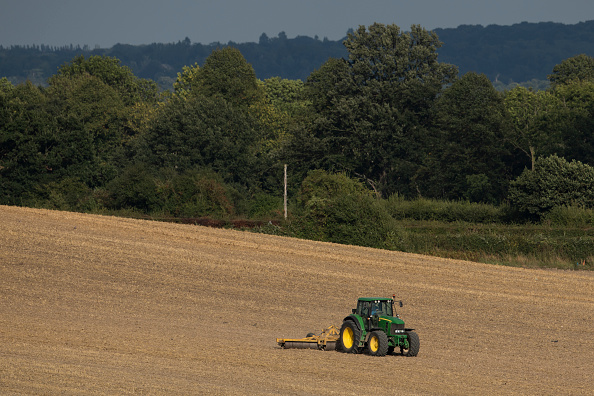Explainer: How the Conservatives lost the farmers’ vote

The Conservatives have lost Britain’s farmers. In December, support for the Tories among farmers dropped to 42 per cent. For the first time in living memory, less than 50 per cent of the farming community said they would vote Conservative if there was an election tomorrow. In December 2021, that number was 57 per cent. In 2020, it was 72 per cent.
This brisk drop in historic support can be explained by the perfect storm British farmers found themselves in. Brexit caused more problems than solutions for most of them, producing serious labour shortages and supply chain issues. It’s hard to forget the awful culling of around 40,000 pigs that took place in the autumn and winter of 2021 because of a shortage of abattoir workers and butchers.
Then the war in Ukraine hit, coupled with a cost-of-living crisis that sent the price of fertilisers through the roof because of inflation. That’s when the farmers looked to the government for increased support to stay afloat. But three years after Brexit, there is still no clarity on what exactly will substitute EU funding and how to access these new pots of cash. So it’s fair to say no real support materialised.
The Elms scheme, a brainchild of Michael Gove, is meant to provide “public money for public goods” incentivising sustainable farming. Yet it’s still surrounded by a fog of uncertainty, so much so that less than 1 per cent of England’s farmers have applied to the “sustainable farming incentive” that is part of Elms.
All of this fuelled a sense of betrayal – and it doesn’t help that at the National Farmers’ Union (NFU) conference taking place today, Rishi Sunak didn’t even bother showing up, sending a pre-recorded video message. Environment Minister Mark Spencer was there instead, announcing a new pot of grants for £160m to support food production and help the environment.
Someone managed to steal the show, however. Keir Starmer took to the stage promising farmers his Labour Party is different, and will take care of them properly. He knows how much the future of British farming relies on a good trading relationship with the EU, so he promised to “remove barriers to exporters, not put them up”, and to shape a new relationship with “our friends” in the EU.
If he manages to convince the farming community there’s space for them within Labour, he’ll have managed a significant success for the next elections. But if farmers do decide to switch to Labour, it will be more because of their contempt for the Tories than because of anything else.
In fact, they might find a more suitable home with the Lib Dems. Some of them already have, as the Lib Dems’ landslide victory in the by-elections in North Shropshire in 2021 and Tiverton and Honiton last year show.
It’s not like the Tories didn’t do anything to keep rural communities on side. They made an unshakable commitment to the green belt to keep them happy, and then watered down housing targets to give rural communities a sense of strong control over new developments.
But in the end, these things might matter less than what Sunak calculated. All farmers want is clarity, security and the support their industry needs in a time of crisis. If they don’t get it from the Tories, they’ll look for it elsewhere.